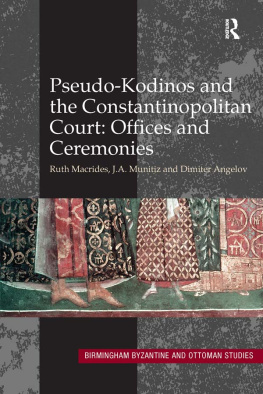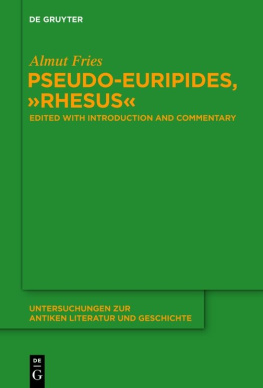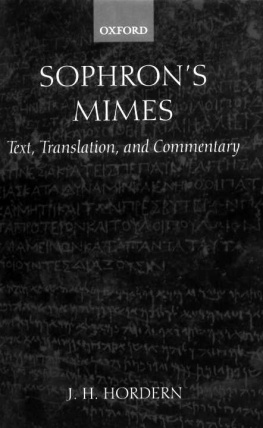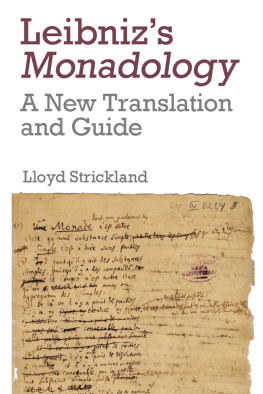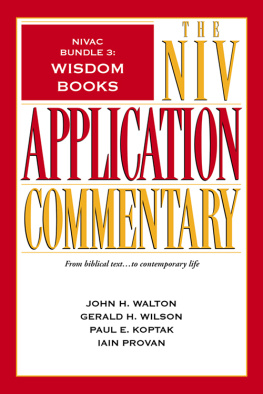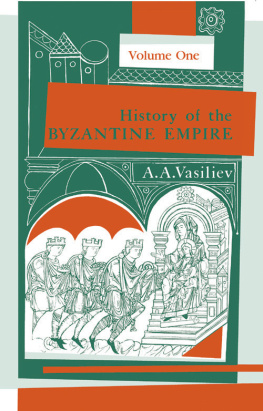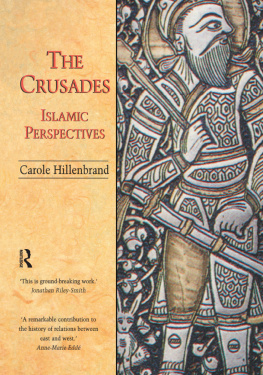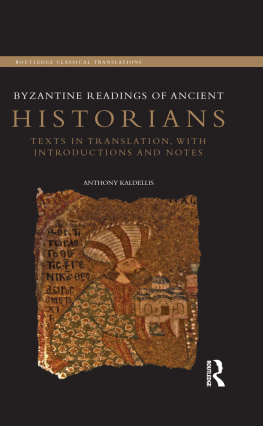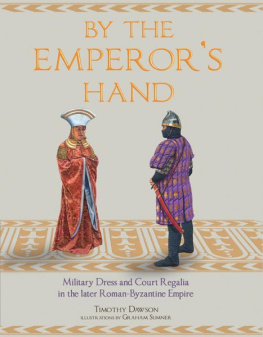Birmingham Byzantine and Ottoman Studies
About the series
Birmingham Byzantine and Ottoman Studies is devoted to the history, culture and archaeology of the Byzantine and Ottoman worlds of the East Mediterranean region from the fifth to the twentieth century. It provides a forum for the publication of research completed by scholars from the Centre for Byzantine, Ottoman and Modern Greek Studies at the University of Birmingham, and those with similar research interests.
About the book
The work known as Pseudo-Kodinos, the fourteenth-century text which is one of two surviving ceremonial books from the Byzantine empire, is presented here for the first time in English translation. With a facing page Greek text and the first indepth analysis in the form of commentary and individual studies on the hierarchy, the ceremonies, court attire, the Blachernai palace, lighting, music, gestures and postures, this volume makes an important new contribution to the study of the Byzantine court, and to the history and culture of Byzantium more broadly.
About the authors
Ruth Macrides is Reader in Byzantine Studies in the Centre for Byzantine, Ottoman and Modern Greek Studies, University of Birmingham, UK.
J.A. Munitiz, SJ, is Honorary Senior Research Fellow in Byzantine, Ottoman and Modern Greek Studies, University of Birmingham, UK.
Dimiter Angelov is Professor of Byzantine History in the Centre for Byzantine, Ottoman and Modern Greek Studies, University of Birmingham, UK.
Birmingham Byzantine and Ottoman Studies
The Emperor Theophilos and the East, 829842
Court and Frontier in Byzantium during the Last Phase of Iconoclasm
Juan Signes Codoer
Approaches to the Byzantine Family
Edited by Leslie Brubaker and Shaun Tougher
Architecture and Hagiography in the Ottoman Empire
The Politics of Bektashi Shrines in the Classical Age
Zeynep Yrekli
The Cult of the Mother of God in Byzantium
Texts and Images
Edited by Leslie Brubaker and Mary B. Cunningham
Art and Identity in Thirteenth-Century Byzantium
Hagia Sophia and the Empire of Trebizond
Antony Eastmond
Famine and Pestilence in the Late Roman and Early Byzantine Empire
A Systematic Survey of Subsistence Crises and Epidemics
Dionysios Ch. Stathakopoulos
Church Law and Church Order in Rome and Byzantium
A Comparative Study
Clarence Gallagher
Byzantium in the Iconoclast Era (ca 680850):The Sources
An Annotated Survey
Leslie Brubaker and John Haldon
PSEUDO-KODINOS AND THE CONSTANTINOPOLITAN COURT: OFFICES AND CEREMONIES
BIRMINGHAM BYZANTINE AND OTTOMAN STUDIES
Volume 15
General Editors
Leslie Brubaker
A.A.M. Bryer
Rhoads Murphey
John Haldon
Centre for Byzantine, Ottoman and Modern Greek StudiesUniversity of Birmingham
Pseudo-Kodinos and the Constantinopolitan Court: Offices and Ceremonies
RUTH MACRIDES
J.A. MUNITIZ
DIMITER ANGELOV

First Published 2013 by Ashgate Publisher
Published 2016 by Routledge
2 Park Square, Milton Park, Abingdon, Oxon OX14 4RN
711 Third Avenue, New York, NY 10017, USA
Routledge is an imprint of the Taylor & Francis Group, an informa business
Copyright Ruth Macrides, J.A. Munitiz and Dimiter Angelov 2013
Ruth Macrides, J.A. Munitiz and Dimiter Angelov have asserted their rights under the Copyright, Designs and Patents Act, 1988, to be identified as the authors of this work.
All rights reserved. No part of this book may be reprinted or reproduced or utilised in any form or by any electronic, mechanical, or other means, now known or hereafter invented, including photocopying and recording, or in any information storage or retrieval system, without permission in writing from the publishers.
Notice:
Product or corporate names may be trademarks or registered trademarks, and are used only for identification and explanation without intent to infringe.
British Library Cataloguing in Publication Data
A catalogue record for this book is available from the British Library
The Library of Congress has cataloged the printed edition as follows:
Pseudo-Kodinos.
Pseudo-Kodinos, The Constantinopolitan court, offices and ceremonies / by Ruth
Macrides, Joseph Munitiz and Dimiter Angelov.
pages cm. (Birmingham Byzantine and Ottoman Studies)
In Greek and English translation on facing pages.
Includes bibliographical references and index.
ISBN 978-0-7546-6752-01. Byzantine Empire
Court and courtiersEarly works to 1800. 2. Byzantine EmpireSocial life and
customsEarly works to 1800. 3. Rites and ceremoniesByzantine EmpireEarly works
to 1800. I. Macrides, R.J II. Munitiz, Joseph A. III. Angelov, Dimiter, 1972-IV. Pseudo-Kodinos
Ta ton ophphikion ton Vasileon Konstantinoupoleos onomata kai ton ophikion tes
Megales Ekklesias. V. Pseudo-Kodinos Ta ton ophphikion ton Vasileon Konstantinoupoleos
onomata kai ton ophphikion tes Megales Ekklesias. English. VI. Title.
DF531.P7713 2013
949.502dc23
2013013165
ISBN 9780754667520 (hbk)
Birmingham Byzantine and Ottoman Studies Volume 13
for
BRYER
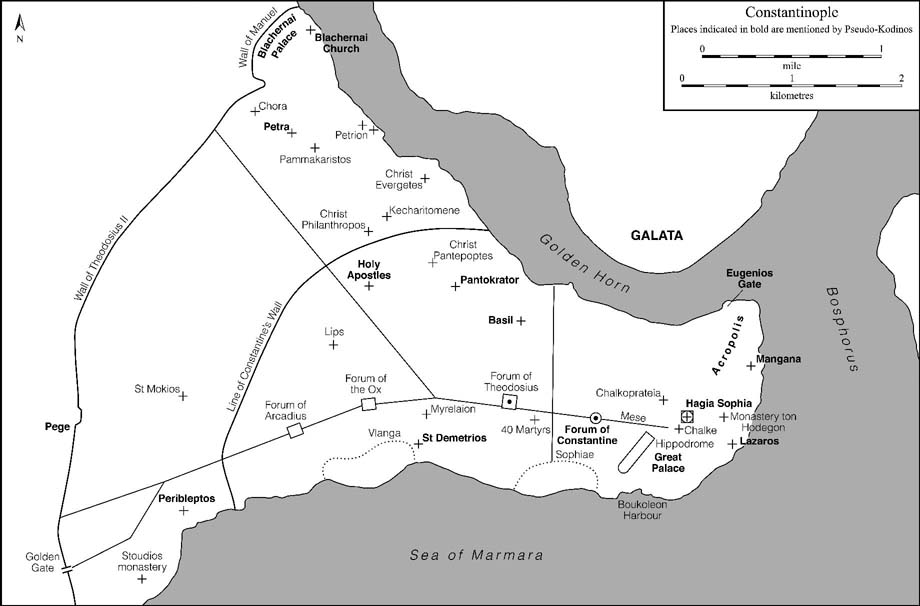
Contents
The plates are located between .
| Akrop. | George Akropolites |
| B | Byzantion |
| ByzForsch | Byzantinische Forschungen |
| BMGS | Byzantine and Modern Greek Studies |
| BSl | Byzantinoslavica |
| BZ | Byzantinische Zeitschrift |
| Chon. | Niketas Choniates |
| DAI | De Administrando Imperio |
| DOP | Dumbarton Oaks Papers |
| EEBS |
| EI | The Encyclopaedia of Islam |
| EO | chos dOrient |
| Greg. | Nikephoros Gregoras |
| JB | (JBG=vols. 117) Jahrbuch der sterreichischen Byzantinistik |
| Kant. | John Kantakouzenos |
| MB |
| MM | Miklosich-Mller |
| OCP | Orientalia Christiana Periodica |
| ODB | The Oxford Dictionary of Byzantium |
| Pach. | George Pachymeres |
| PBW | The Prosopography of the Byzantine World |
| PG | Patrologia Graeca |
| PLP | Prosopographisches Lexikon der Palaiologenzeit |
| Ps.-Kod. | Pseudo-Kodinos |
| REB | Revue des tudes byzantines |
| RESEE | Revue des tudes sud-est europennes |
| Rh-P | Rhalles-Potles, |
| Skyl. | John Skylitzes |
| Theoph. | Theophanes |
| Theoph. Cont. | Theophanes Continuatus |
| TM | Travaux et Mmoires |
| Zon. | John Zonaras |
| ZRVI | Zbornik Radova Vizantolokog Instituta |
Greek names and terms have been transliterated as closely as possible. Common Christian names and well-known place-names are given in the form most familiar to English readers. Greek is rendered as e and as b for Byzantine names, except where the Latin origin of the name makes v more appropriate.

